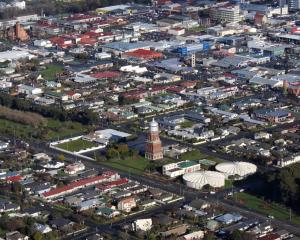Selling off our prime agricultural land would, ultimately, propel us down a path to slavery, argues John de Bueger.
When asked why the organisation he represented wished to buy not only the 29 Crafar North Island farms in receivership, but even more in the South Island, Bill Ralston said that his clients, Hong Kong-listed Natural Dairy New Zealand, wished to be "masters of their own destiny" - a statement that many a true entrepreneur would initially concur was reasonable.
NDNZ's aim is vertically integrated control over the supply chain of infant formula from farm gate in New Zealand to its sales distribution network in China.
This includes spending $1.5 billion on a processing plant and the necessary number of farms to supply it.
Following the Sanlu melamine baby poisoning saga a couple of years ago (costing Fonterra a cheerful couple of hundred million dollars), gun-shy Chinese mothers have avoided local product.
A recent KPMG report has questioned our long-term agricultural advantage, but China's proud history of corruption and food adulteration will always ensure that imports with pictures of New Zealand pastures blazoned over the packet, exploiting our clean and green image, will sell well.
Given the insatiable demand of the Chinese market you don't need to be a genius to predict that demand for yet more product is inevitable, followed by grandiose expansion plans, and more farms being swallowed up at prices local buyers can't match.
If we are stupid enough to allow the process to continue, it will only end when we have lost control forever of the only thing that matters in the battle to balance our foreign exchange books - prime agricultural land.
It is important to see this Asian land grab in context.
We are not the only country being targeted.
South Korea, China, etc, etc are buying up millions of hectares of productive land anywhere - Africa, Madagascar, South America - with produce being shipped back home, and in the process turning those inhabitants stupid enough to sell out into little more than paid peasantry.
The word "master" implies a conceptual duality; it can't exist on its own.
For every master, someone else has to be a subordinate, or as in times past, a serf, a tied-peasant or a slave.
It is not being alarmist to suggest that dairy investment initiatives of this type represent the thin end of the wedge.
NDNZ should be told to go and buy up Chinese farms instead, and if it wants New Zealand genetics and technology, such expertise can be willingly provided on normal commercial terms.
The Overseas Investment Commission (OIC) needs to recall that when the Chinese tried to buy up the big Aussie mining companies (for example, Rio Tinto) so they could control the selling price of iron ore to themselves, they were told in double-quick time, "No way, Jose".
China reacted with fury and jailed Rio Tinto's China-based negotiator for 15 years, but it is still buying their iron ore.
NDNZ should be told that its proposal is barely worthy of the OIC affording it the courtesy of considering its merits.
To make this crystal clear, we need to stress again with no ifs and no buts that, by law, parcels of prime agricultural land larger than 5 acres (2ha) are not for sale to foreigners or to dodgy Trojan Horse shell companies contrived by foreign-funded New Zealand residents or hapu in an effort to circumvent current rules.
Anything else is propelling us down the path to slavery.
Such a restatement - along with a swingeing capital gains tax to deter subdivision of prime land - would not receive universal approval from farmers, or any other get-rich-quick merchants/developers lining up farms to sell to cashed-up foreign buyers.
It would depress the price of agricultural land, and coincidentally, have two highly desirable side effects.
It would make the transition to the next generation easier.
It is very distressing if a farmer wishing to retire and pass ownership to his son is prevented from doing so by the inflated cost of land - a problem largely caused by foreign money.
And, reckless bank lending that directly caused the Crafar fiasco would be discouraged.
Shane Arden and John Key please note.
• John de Bueger is a New Plymouth writer and engineer.







